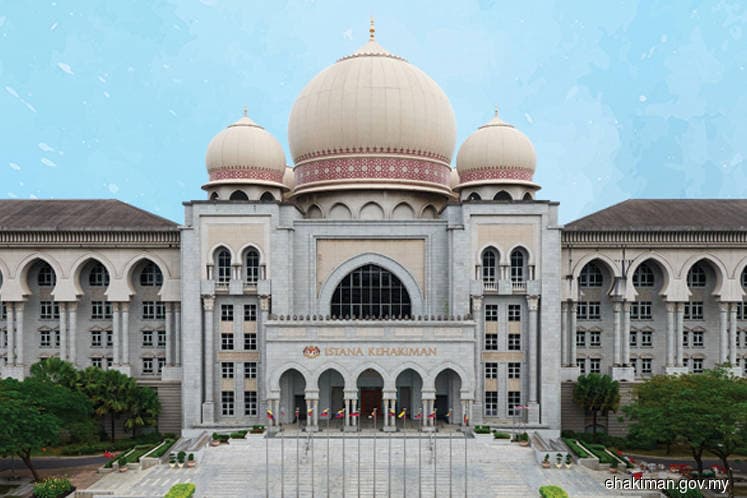
This article first appeared in The Edge Financial Daily on April 24, 2019
PUTRAJAYA: The Federal Court will decide once and for all whether the prime minister and members of the cabinet are considered public officers and can be held liable for any action in tort for misfeasance in public office.
This follows the seven-member bench hearing the appeal by Damansara member of Parliament Tony Pua, who is suing former premier Datuk Seri Najib Razak and the government for misfeasance in public office with regards to 1Malaysia Development Bhd (1MDB).
The appeal arose following a decision by the High Court in Kuala Lumpur, later endorsed by the Court of Appeal, that Najib as PM was not a public officer.
Two questions of law had been posed before the bench led by acting Chief Justice Tan Sri Ahmad Ma’arop, who is also the Court of Appeal president.
The questions are:
• Whether the PM or any minister is a public officer under Section 5 of the Government Proceedings Act 1956, for the purposes of the tort of misfeasance in public office; and,
• Whether a court, in determining if the PM or any minister is a public officer for the purposes of the tort of misfeasance in public office, is limited by the definition of “public officer” in Section 3 of the Interpretation Act 1948 (1957), read together with Article 132 and Article 160 of the Federal Constitution.
Pua’s counsel Datuk Malik Imtiaz Sarwar told the bench that the High Court and the appellate court had misdirected themselves in applying the Interpretation Act 1948, and not adopting the common law action in the tort of misfeasance.
“The tort of misfeasance is recognised by Malaysia by virtue of its recognition in the Civil Law Act 1956,” he added.
The tort of misfeasance is a cause of action that is available in England and Wales and certain Commonwealth countries, against a person holding public office, for alleged abuse of their power.
Malik further argued that the right of action cannot be restricted to exclude the PM or ministers as this would place them above the law and deny any other individuals access to justice.
He added that this is in violation of Article 8 of the Federal Constitution that guarantees everyone equal protection under the law.
“The PM or his cabinet cannot be above the law in their actions, where there is no avenue for private individuals like you and me to seek justice. They can be sued by appropriate parties in this court,” he added.
Malik further said the government can be held liable where the Government Proceedings Act 1956, must be read in a way that it does not dilute the access to justice from litigants.
“The government should be made responsible for the conduct of the executive,” he said, adding meaningful judgements for this tort can only be obtained and satisfied where the government is made vicariously liable.
Pua had filed the suit against Najib and the government for misfeasance in public office over the 1MDB issue and had sought general, aggravated and exemplary damages, interest, cost and other relief as deemed fit by the court.
He claimed that Najib was a public officer since he was the Pekan MP, the PM then and chairman of the 1MDB board of advisors, and that in those capacities he had a direct or indirect role in the decisions and direction of 1MDB that suffered losses.
Pua obtained leave from the Federal Court last Nov 5 to have the full appeal to be heard on its merits.
Senior Federal Counsel Alice Loke, who appeared for the government, said: “A public officer should not include the minister, as the person is recognised as a member of the administration.”
The Interpretation Act, she said, cannot be used to interpret the meaning of public officer within common law.
Najib’s lawyer Datuk Wira Mohd Hafarizam Harun said the PM and ministers are not public officers as they do not fall under Article 132 of the Federal Constitution.
The article stipulates that the public services are the armed forces, judicial and legal service, the general public service of the federation, the police force, the joint public services mentioned in Article 133, the public service of each state and the education service.
Hafarizam said other forms of action like judicial review and the present criminal action by the Malaysian Anti-Corruption Commission against Najib can be taken but not the misfeasance in public office suit.
This led Federal Court judge Justice Datuk Mohd Zawawi Mohd Salleh to say that people are questioning “why ikan bilis kena tetapi tidak ikan jerung” (why small fries are taken action against and not the big sharks).
“As Malik had submitted, they cannot be immuned under the law,” the judge said.
Justice Ahmad deferred the decision as he wanted further submissions within two weeks on the issue of locus standi (legal standing) for Pua in initiating the suit and the injury or loss that the elected representative had suffered.
The other judges besides Justice Ahmad and Justice Zawawi are Federal Court judges Tan Sri Azahar Mohamed, Datuk Alizatul Khair Osman Khairuddin, Datuk Rohana Yusof, Datuk Tengku Maimun Tuan Mat and Datuk P Nalini.